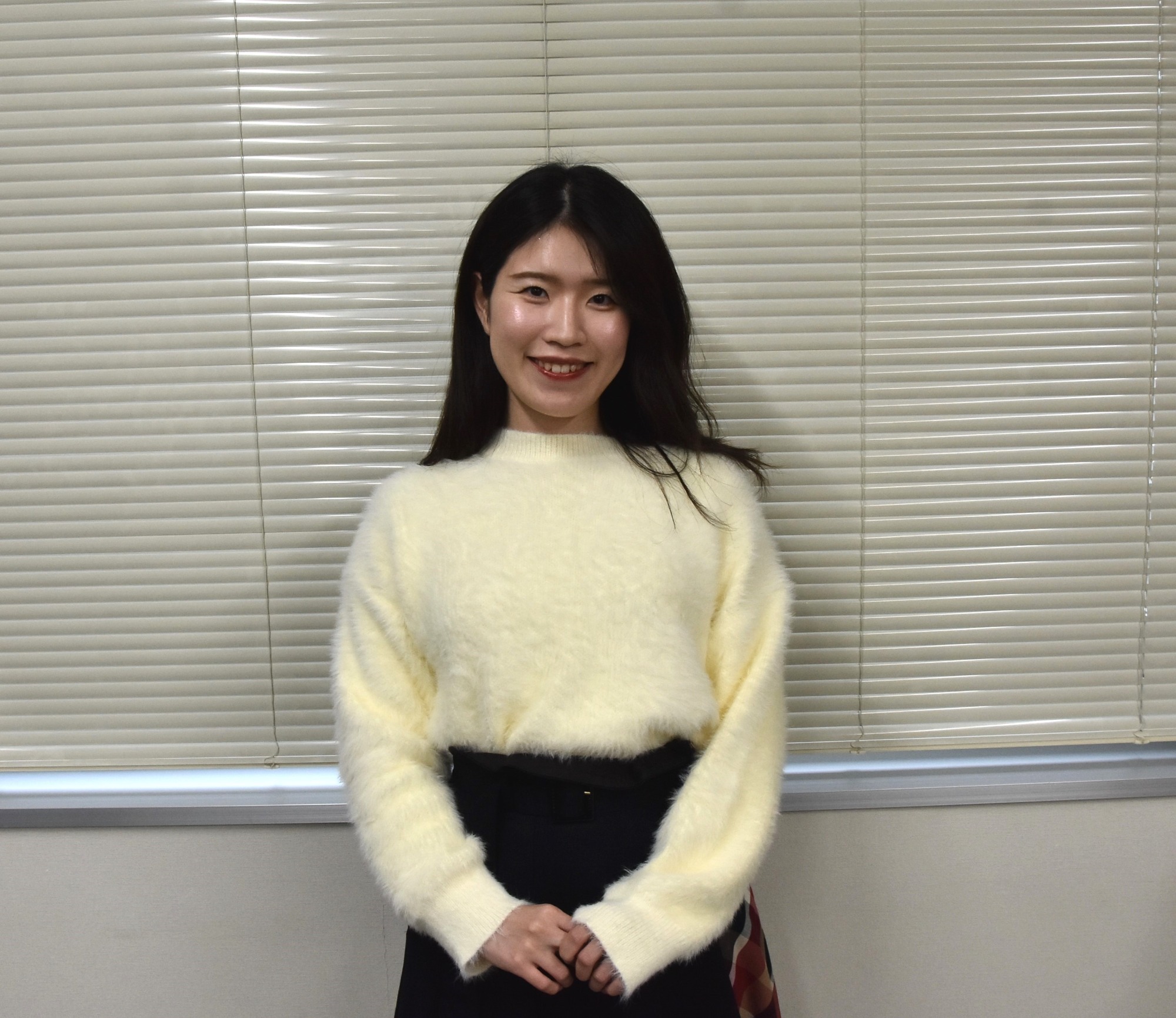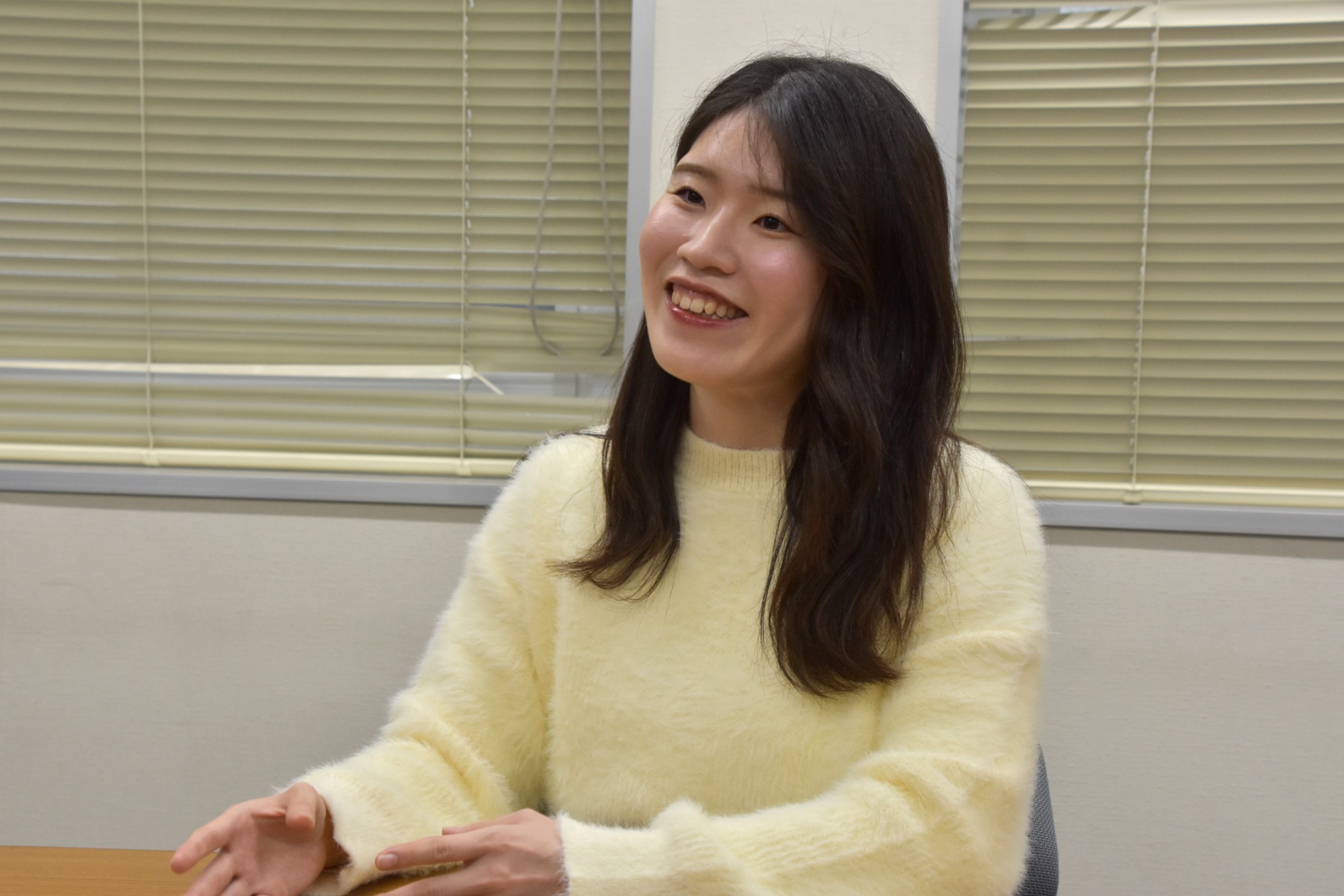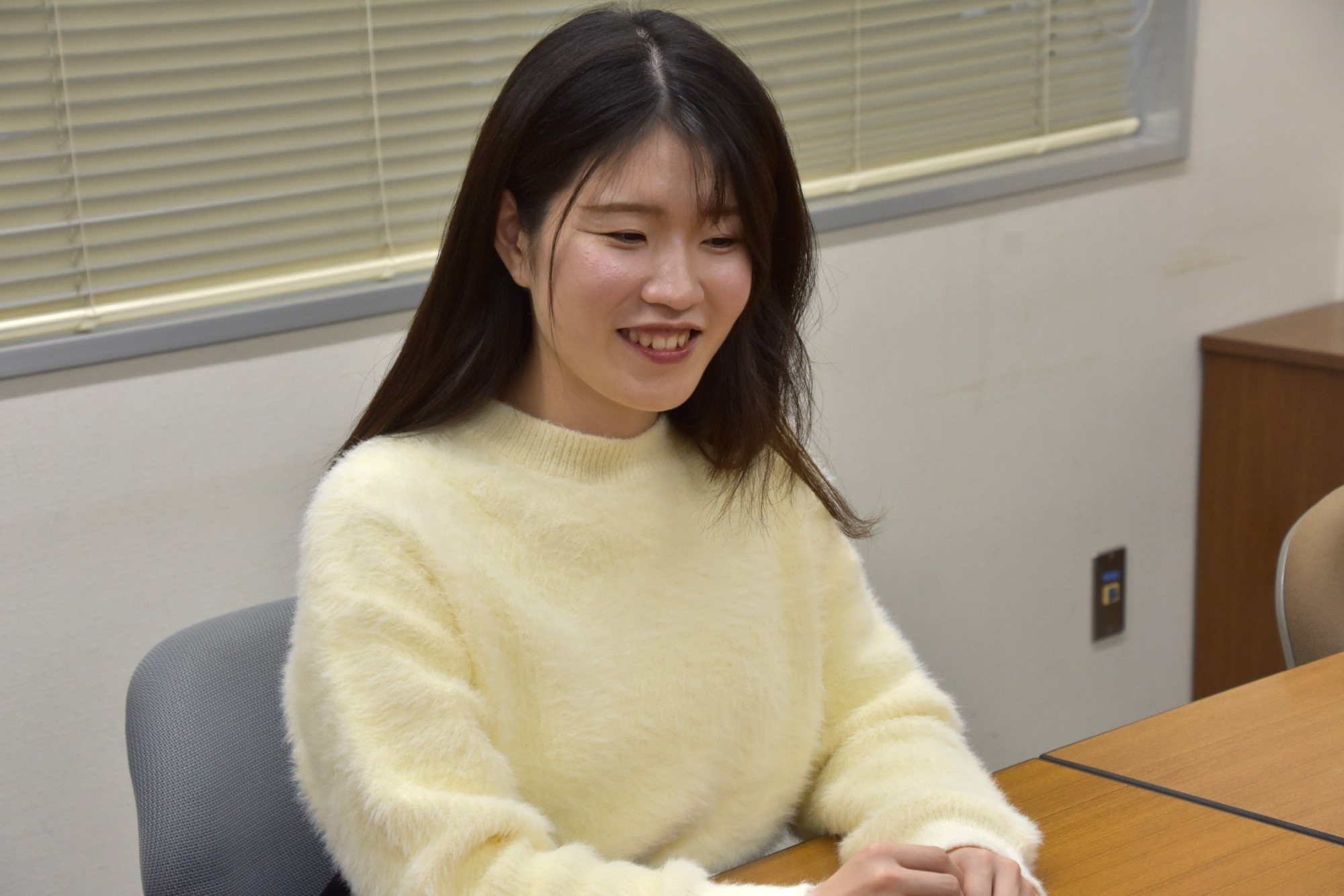Notice
[Student Achievements] From the Research Physician Course to New Fields - Unrelenting Challenges
Yuki Takasaka, a sixth-year School of Medicine student enrolled in the research physician course, has been accepted into the Ministry of Health, Labor and Welfare's highly competitive Basic Research Physician Program. After graduation, she will complete clinical training while studying basic research as a graduate student at the International Institute for Integrative Sleep Medicine (IIIS) at the University of Tsukuba, a top-level research center in sleep medicine. We would like to introduce her achievements to date and her future career as she embarks on a new stage at our university.

Studying at the International Institute for Integrative Sleep Medicine (IIIS) at the University of Tsukuba after graduation
Please give us your honest thoughts about what you can learn at the International Institute for Integrative Sleep Medicine (IIIS) at the University of Tsukuba, a top-level research center for sleep medicine.
I'm happy. To be honest, I had no idea at first what the title of "world-class" meant. I was looking for various labs that I found interesting, and by chance, Professor Sakurai's lab at IIIS matched my interests. People around me were surprised, saying, "You're going to that big lab!" and "It's often featured on TV!", and it only became clear to me later that I was going to a really big lab. While I'm happy, I've heard that the lab attracts many talented people, so I'm a bit worried about whether I'll be able to get along well there.
I think you will do well at IIIS. Did you consult with your supervisor before applying to IIIS?
Thank you. Initially, I wanted to go to graduate school at the University of Tsukuba, so I consulted with my supervisor, Professor Arata. He introduced me to two or three places, one of which was the laboratory at IIIS. The laboratory he introduced me to at that time was run by a different professor than Professor Sakurai, but when he introduced me to it, I was searching the internet for interesting laboratories, and I came across Professor Sakurai's lab. So I made an appointment with Professor Sakurai directly and visited his lab. I started making moves like this around November of my fifth year.
In a previous interview, you said that you wanted to contribute to elucidating REM sleep behavior disorder. Was your interest in sleep medicine around that time?
At the time of our previous interview, I still felt that research was fun. However, that doesn't mean I wasn't interested at all. When I was a freshman at university, I attended a lecture by Professor Yanagisawa from Tsukuba University at our university, and I remember thinking that sleep was fascinating. Then, in my second year at university, I listened to Professor Arata's talk on sleep in his class, and I thought the human body was fascinating, and I became even more interested in sleep medicine. Professor Arata's class was the most interesting and fun. It was also what led me to join my current lab.
Previous interviews can be found at the links below:
Were you nervous during your graduate school interview?
I was so nervous that I think it was obvious to the interviewers that I was nervous. There were four interviewers, and when I looked over I noticed that it was Professor Sakurai, the professor in the lab I was applying to, which made me very nervous. However, as the interview progressed I felt that it wasn't an interview designed to fail me, and I was able to talk calmly about various things.
Looking back on what I learned in the research physician course

You have given presentations at many academic conferences, but have there been any particularly memorable or difficult ones?
Making friends of my generation through the many conferences I attended was a great experience. Depending on the conference venue, student presentations were often all gathered in one corner, and meeting the people I met there at the next conference made me feel motivated, "They're working hard, so I want to work hard too." This is one of the great things about participating in so many conference presentations. The most difficult part was my final presentation for the IDDI Obata Award. Up until then, I'd mostly spoken to people from the same academic society, and they'd listened with a certain degree of understanding. But this time, the key was to communicate clearly to people from completely different fields in the limited time of five minutes. It was my first attempt, and it was extremely difficult. I was truly grateful for the support I received from friends in my lab during practice and preparation, and for the help of alumni who corrected my manuscript.
Please tell us about any experiences you have had that you think were only possible because of the research doctor course. Also, please tell us your impressions of what you learned in the research doctor course.
I had a relatively large amount of time to devote to experiments, which allowed me to make progress in my experiments, and I was able to give presentations at many conferences. Looking back now, I think that SfN (Society for Neuroscience) was an extension of the many conferences I gave presentations at in Japan. I think that I would not have been able to attend a major international conference while still a student had I not been in the research physician course.
Additionally, graduate students often have to pay for their own attendance at conferences, but I think the benefit of the research physician course is that it provides assistance with conference participation fees and other expenses.
As you will be studying at graduate school while undergoing clinical training, please tell us how you feel now and what your future aspirations are.
First of all, I'm grateful to have been accepted into the research physician program and to have been accepted by graduate school. I'm also filled with gratitude to my supervisor, Professor Arata, who helped me during my preparation period, as well as Professor Koga and Mr. Kawabata from the neighboring lab. While I'm grateful, I'm also a little anxious about the lack of peers and the wide range of work I have to do, as it's rare across the country to be both a graduate student and a resident. However, I intend to do my best to the best of my ability, with a "grab the opportunity" mentality. In the future, I'd like to continue research for as long as possible. If the opportunity arises, I'd also like to go abroad and work as a postdoctoral researcher.
Please give a message to those who are considering the research physician course.

I believe that the research physician course is an environment where you can conduct as much research as you want if you want to. Thanks to the support of Professor Arata and other professors, I have been able to present at conferences and workshops a total of 10 times (as of November 2024). I have also had the opportunity to thoroughly focus on experiments and gain various experiences, such as taking graduate school entrance exams. I believe these experiences would not have been possible anywhere else but in the research physician course.
I think this is a course where you can try anything as long as you don't limit yourself. I'm sure there are some people who are undecided between the Faculty of Science and School of Medicine, just like me. I think the Research Physician Course also has some elements of the Faculty of Science. The course provides an environment where you can conduct research while pursuing a medical degree, so I would encourage students who want to do research but also want to pursue a career as a doctor to consider the Research Physician Course at Hyogo Medical University of Medicine!
Message to my supervisor, Professor Arata (Division of Physiology and Biophysics)
Without Professor Arata, I would never have thought of going to graduate school. I also don't think I would have been able to make time for research or attend conferences as frequently as I do now. I owe it all to Professor Arata for always leading me along. I'm extremely grateful for the support he has given me throughout most of my university life, from my third year until now. Thank you very much.
Message from my supervisor (Associate Professor Akiko Arata, Department of Physiology and Biological Functions)
From the beginning, Takasaka-san wanted to pursue a research physician course and visited many labs. My lab was one of his options, but after looking at various options, he ultimately chose my lab. I was very happy and wanted to give him the best possible research experience. Because we had ample research funding, I was able to send him to many conferences. These meetings led to him making many research friends among the many students and young researchers, which surprised me. While I thought Takasaka-san was cautious, he also had a bold side, and his willingness to take on challenges when the opportunity presented itself makes him well suited to a researcher. I was very happy when he ultimately decided to pursue the basic residency course and graduate school upon graduation. I'm excited to think that the students I nurtured might be working as basic researchers in the future...and that we might even meet again at a conference. I have many friends at the University of Tsukuba, so please rely on them and ask for advice if you need anything. Don't try to handle everything on your own! The Sakurai Lab at IIIS is certainly a large lab, but that doesn't mean you won't receive detailed attention, so it's important to learn on your own. Please stick to your original intentions and walk unwaveringly towards your ideal image of a researcher. Also, if you have any questions, please come and consult with me. I am available to consult with you no matter where you are.
◆An interview with Naoko Masutani, also a 6th year School of Medicine student in the research physician course, can be viewed at the link below.
[Student Achievements] Research Doctor Course Student Receives Japan Neuroscience Society Domestic Travel Award